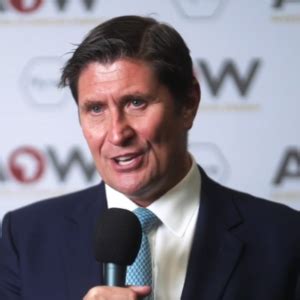Africa possesses vast gas reserves that, if effectively utilized, can provide immediate solutions to the continent’s pressing challenges, according to Mr. Roger Brown, CEO of Seplat Energy Plc. He made this statement at the ongoing Africa Oil Week (AOW) Conference and Exhibition in Cape Town, South Africa.
In his keynote address at the AOW Gas Forum, themed “Enhancing Africa’s Gas Capacity,” Brown emphasized that gas can serve as a baseload power source to support the growth of renewable energy, which currently constitutes a small portion of Africa’s energy mix. He stressed the need to transition away from coal as a primary electricity source to achieve decarbonization.
“Gas will play a crucial role in reducing reliance on coal and oil for electricity,” Brown stated.
He highlighted the importance of capital providers recognizing gas as a vital fuel source for Africa. “Africa’s abundant gas reserves can address immediate issues and facilitate widespread electrification, ultimately increasing per capita electricity consumption,” he noted.
Brown pointed out that improved access to affordable, reliable energy is essential for Africa’s development, driving job creation and prosperity. He argued that gas can help achieve several United Nations Sustainable Development Goals (SDGs) by reducing costs and enhancing energy access.
He also mentioned that using bottled gas could prevent nearly half a million deaths linked to biomass cooking and mitigate deforestation. “Natural gas is a cost-effective and immediate input for fertilizers needed in large-scale agriculture, and it is crucial for basic infrastructure, with no commercially viable low-carbon alternatives for cement, steel, and glass production,” he added.
During a panel discussion titled “Gas-to-Power: Unlocking Africa’s Potential,” Brown reiterated Seplat Energy’s commitment to integrating gas into Africa’s power system, stating that it can provide reliable power around the clock or support renewables with overnight baseload energy.
“Gas is decarbonizing Africa’s energy landscape compared to the millions of generators currently in use, producing half the CO2 emissions of diesel and burning more cleanly,” he explained.
Using the Seplat Energy ANOH Gas Plant as an example, Brown noted that its operation would support over 1GW of grid-scale generation, displacing numerous small-scale generators. He highlighted the significant benefits, including lower costs for businesses and households, reduced foreign exchange drain from fuel imports, enhanced efficiency, lower emissions, and rehabilitation of idle grid capacity due to a lack of gas.
Brown disclosed that Seplat Energy is investing in its midstream gas business to deliver more gas and Liquefied Petroleum Gas (LPG) to the market while reducing carbon intensity.
“We are making substantial progress with our capital investment projects, including ending routine flaring and developing the ANOH and Sapele Integrated Gas Plants to process natural gas and LPG for the domestic market. We are also exploring investment opportunities in the new energy sector, focusing on gas-to-power and renewable energy initiatives,” he concluded.







